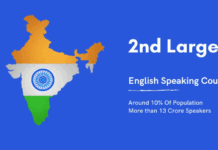In modern India, illiteracy is a burning problem. A study shows that India’s current Adult Literacy Rate is 73.2 percent which means there are still 26.8 percent people who are illiterate. In this article, we have discussed some ways to defeat the curse of illiteracy.
Illiteracy in India is a modern day problem. It is a big obstacle in the way of development of any country. And in a developing country like India, there are approximately 287 million people in India who are illiterate, the highest in the World. Bihar, Jharkhand, Uttar Pradesh is the States with lowest literacy rate. There are at least 60 lakh child who are still out of school.
There are many prior reasons of illiteracy, like-
1. High rate of population growth disproportionately decreases the literacy rate.
2. Illiteracy of Parents is a big factor and plays an important role in child’s schooling.
3. Ineffectiveness of primary and upper primary schools in enrolling and retaining students.
4. One of the main reason of illiteracy in India is extensive poverty among the lower class of India.
5. Government allots a very low amount of fund to the education sector.
As we can see, there are many problems in the way to increase the literacy rate among the common people. But there are some solutions too to deal with the adversity.
1. Raising Awareness in support of Education :
In order to defeat the curse of illiteracy, we can raise awareness for education. There are underprivileged area of middle and northern part of India, where education is still a taboo. Some of the lower class people still don’t want their daughters to be educated. We have to make sure that everyone in every corner of India gets the basic education and learn some skills to earn for living. Instead of simply stating the importance of education, we need to show them the value of education. We can help them learn how having educated children could benefit their families in terms of both financial and societal status.
2. Raising Awareness against Child Labour :
Many young children in india often fall into the trap of child labour. And if once they fell, it is quite difficult to take them out to the mainstream. The parents push them to earn some extra bucks for their family. We have to raise awareness amongst the parents in order to stop the child labour system. We have to convince them that, instead of pushing them to labour, the parents should sent their children to primary schools to have the fundamental education.
3. Free Schools :
The Right to Education Act (2009) has ensured that children between the age group of 6-14 should receive free and compulsory education. As a result of this Act, there have been some improvements in the number of children within these age groups getting education. But also, we have to think about the percentage of children who don’t include in this age group. The child, whose age is below 6 or above 14, may also want to continue their study. We should support their education. There are some NGOs who are working on this purpose dedicatedly. They have opened a number of open-to-all schools to learn and educate the underprivileged children.
4. Mid-Day-Meal :
The main reason behind this uncompromising illiteracy rate is poverty. A high percentage of backward people of India cannot make enough earning to feed their children. To provide the necessary motivation to pull these children to school and encourage their parents to send them, the initiative was taken to address the poor nutritional status. A scheme providing the Nutrition Support to Primary Education, popularly known as Mid-day meal programme (MDM), was introduced. In return, it is promoting improved school enrolment, attendance and retention.
5. Empowering Teachers and providing stationeries :
We should always empower the teachers and staffs who runs the free schools which provides free education to the underprivileged children. Sometimes it becomes quite impossible for the teachers to work for free or in a low salary. Instead of this, we can think about the teachers who can volunteer their service as teachers or trainers to serve the children and also to serve the future of the nation.
Here, we mentioned some of the major problems and probable solution of illiteracy in India. We don’t hope. We believe we can overcome this curse and make our nation great, again.













































